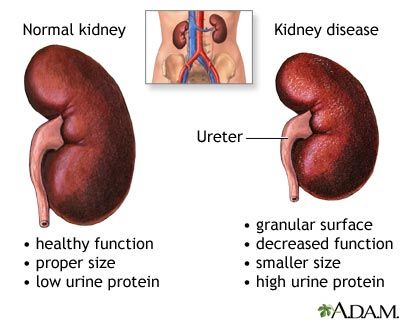Renal Failure

What is Renal Failure?
Renal failure, also known as kidney failure, is a serious medical condition characterized by the kidneys' inability to adequately filter waste and excess fluids from the blood. It can be acute (sudden) or chronic (long-term), with the latter being a progressive disease often leading to end-stage renal disease.
Who’s at Risk for Renal Failure?
Renal failure can affect people of all ages, but individuals with the following conditions are at higher risk: diabetes, high blood pressure, heart disease, liver disease, and those with a family history of kidney disease. Age is also a factor, with those over 60 being at higher risk.
What Causes Renal Failure?
The two most common causes of renal failure are diabetes and high blood pressure, which can damage the kidneys over time. Other causes include urinary tract issues, certain autoimmune diseases, genetic diseases like polycystic kidney disease, and acute incidents like sepsis or certain medications.
How Does Renal Failure Start?
Renal failure often starts subtly with few noticeable symptoms. Over time, as kidney function decreases, the body struggles to eliminate waste and excess fluid, leading to a buildup of toxins in the bloodstream.
What Are the Symptoms of Renal Failure?
Symptoms can include fatigue, difficulty concentrating, decreased urine output, swelling due to fluid retention, shortness of breath, nausea, and irregular heartbeat. However, these symptoms are often non-specific and can be attributed to other conditions.
How is Renal Failure Diagnosed?
Renal failure is usually diagnosed through blood tests, urine tests, and imaging tests. Blood tests measure levels of waste products such as creatinine and urea, while urine tests look for abnormalities that might suggest kidney damage. Imaging tests like ultrasound provide information about the size and structure of the kidneys.
How Can Renal Failure Be Treated?
Treatment for renal failure depends on the cause and severity. In the case of acute renal failure, treatment often involves addressing the underlying cause. Chronic renal failure treatment focuses on slowing the progression of kidney damage and may include medications, dietary changes, and eventually dialysis or kidney transplantation.
What Complications May Occur with Renal Failure?
Complications of renal failure can be severe, including high blood pressure, anemia, weak bones, poor nutritional health, and nerve damage. Kidney failure also increases the risk of having heart and blood vessel disease.
How Can I Prevent Renal Failure?
Preventing renal failure involves maintaining a healthy lifestyle to reduce the risk of conditions that can lead to kidney disease. This includes a balanced diet, regular exercise, avoiding smoking and excessive alcohol consumption, and keeping conditions like diabetes and hypertension under control.
Long-term Management of Renal Failure
Long-term management typically involves regular check-ups to monitor kidney function, adhering to prescribed treatments, dietary adjustments, and lifestyle modifications. If kidney function becomes critically low, treatment will involve regular dialysis or a kidney transplant.
What is Recent Research Saying About Renal Failure?
Recent research is focused on finding new ways to prevent and treat renal failure. This includes studying the genetic factors contributing to the disease, exploring the potential of stem cells for kidney repair, and developing new dialysis methods and more effective immunosuppressant drugs for transplant patients.
Where Can I Go For More Information on Renal Failure?
For more information on renal failure, visit reputable health websites like the National Kidney Foundation, the American Kidney Fund, or the National Institutes of Health. These resources provide comprehensive information about the condition, treatment options, and ongoing research.

